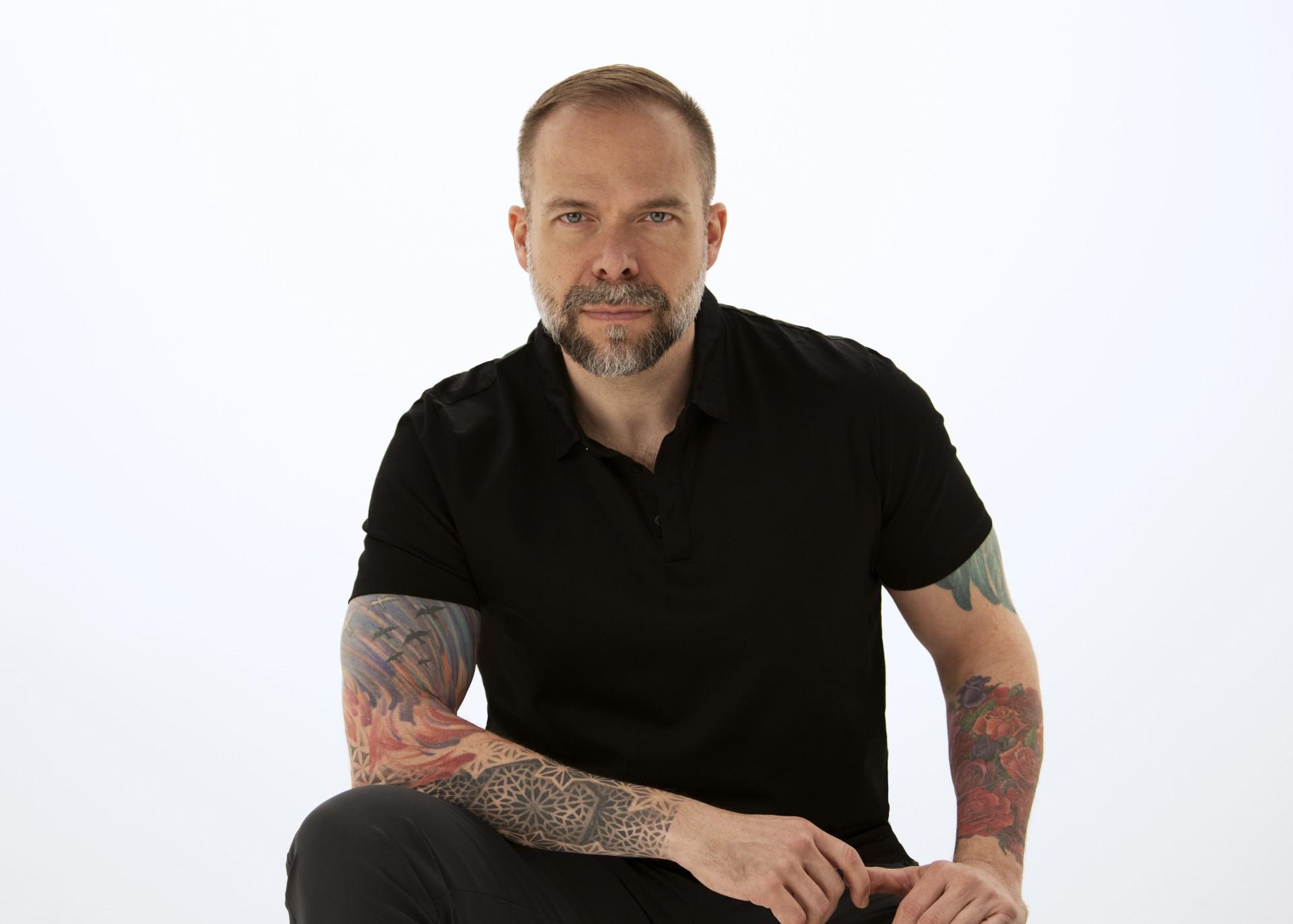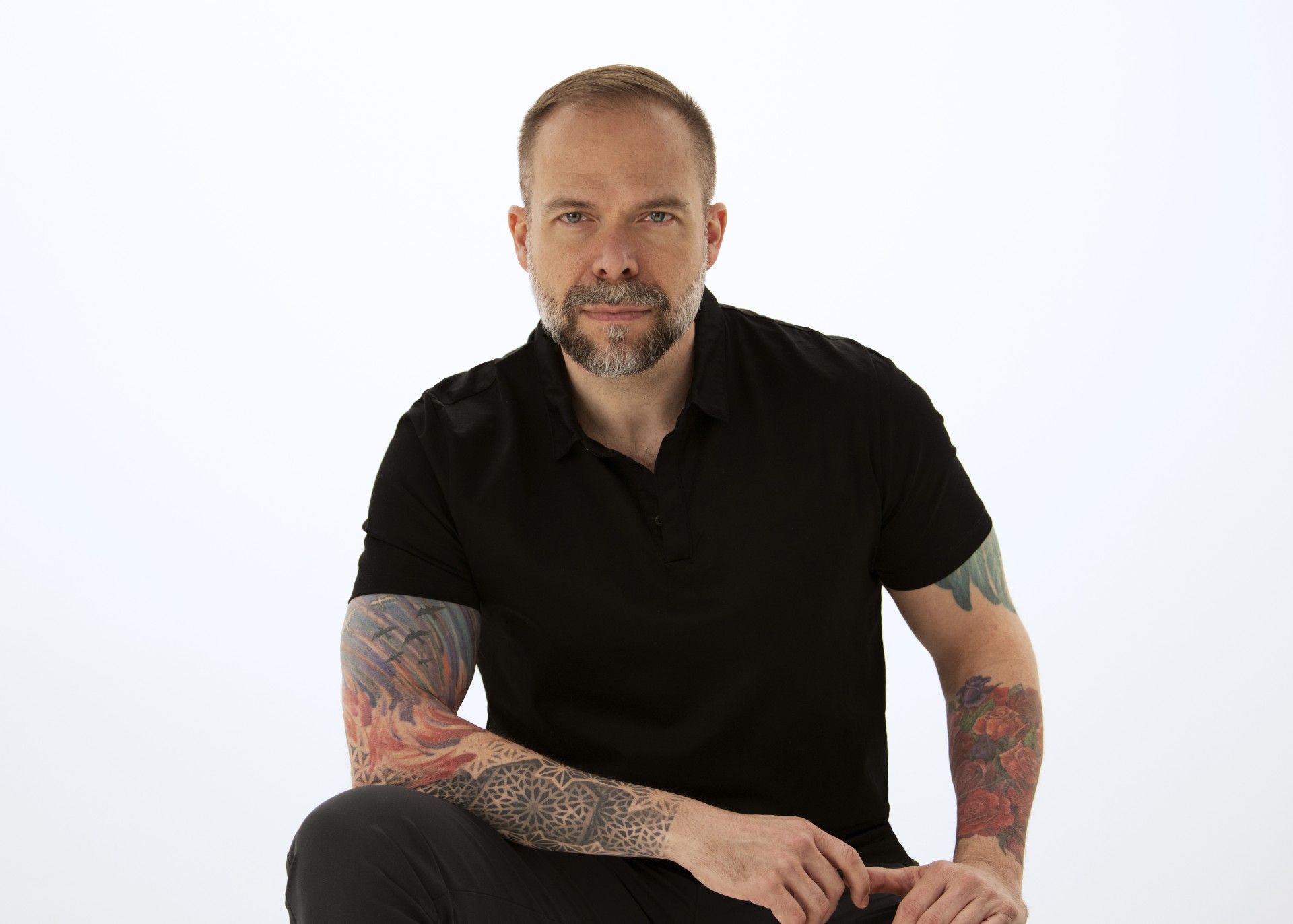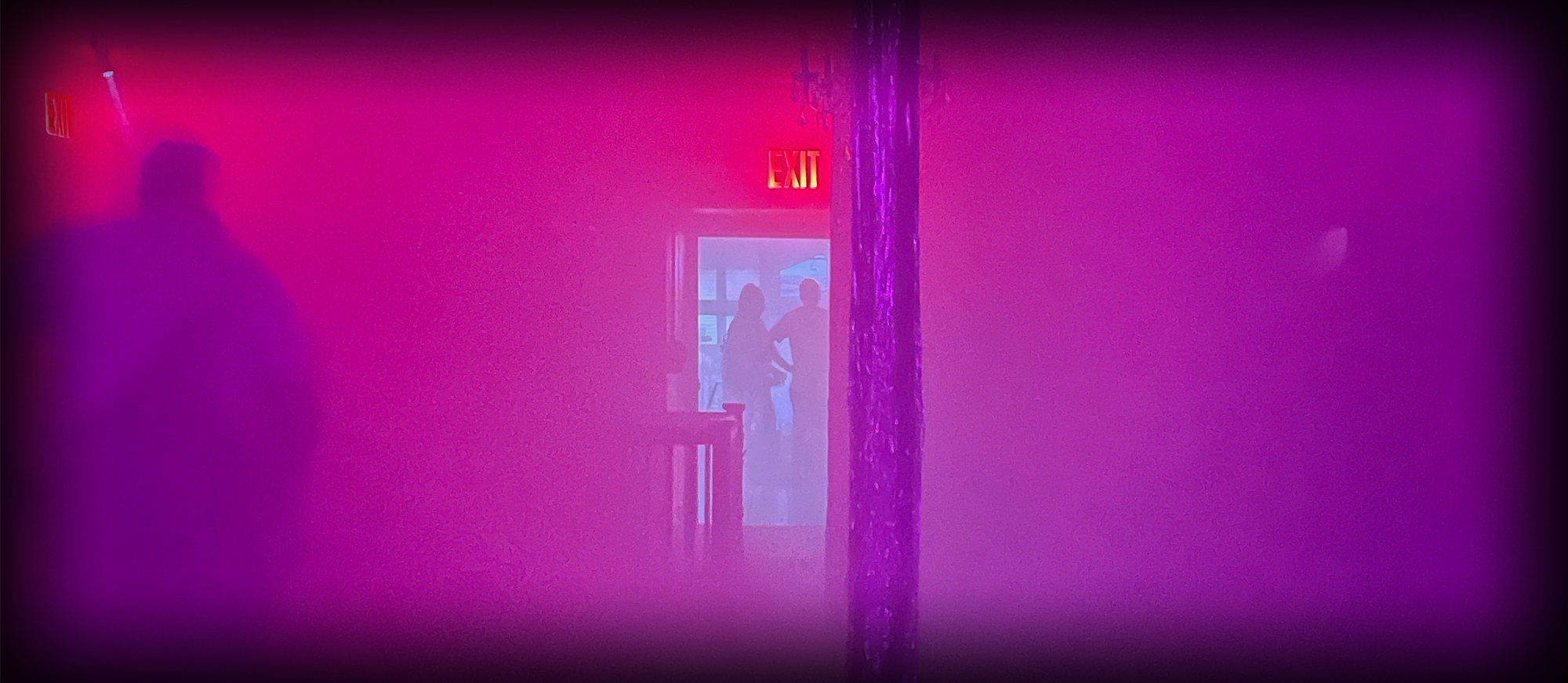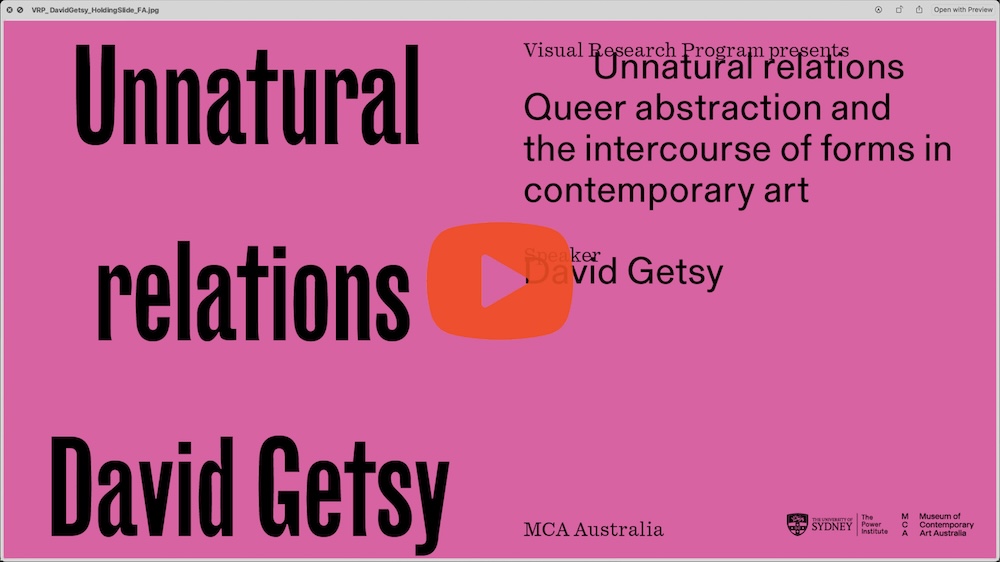Unnatural relations: Queer abstraction and the intercourse of forms in contemporary art

A lecture by David Getsy, one of the US's foremost thinkers of the relationships between art, performance and queer studies.
Many artists know that abstract art has queer potential. By turning away from the representation of the recognizable world, artists can invest in forms and formal relations to conjure and present less restricted versions of how things might be—and be together. Since its emergence in modernism, abstraction has proved a useful place for some artists to register their lack of fit with expectations of sex, gender, family, and society that are based on a narrow, binary account of how people relate to one another. This lecture will discuss the recurrence of “queer abstraction” in modern and contemporary art, asking how non-representational art relates to the politics of visibility that have been so central to LGBT political and social movements. It will trace some founding formulations of the capacities of abstraction to evoke non-normative sexualities, genders, and lives—including artists such as Harmony Hammond, Lula Mae Blocton, and Felix Gonzalez-Torres—as well as provide examples of artists working today in different media who engage with abstraction’s queer possibilities.
Co-presented by the Power Institute and the Museum of Contemporary Art Australia. David Getsy's visit to Australia has been made possible thanks to the support of the ANU Research School of Humanities & the Art.
People

David J. Getsy
David J. Getsy writes to recover the queer and transgender capacities that have been lost or suppressed in histories of art and performance. His areas of research and teaching span modern and contemporary art and culture from the nineteenth century to the present, with a focus on queer and transgender histories and methods. He has published eight books, including Queer Behavior: Scott Burton and Performance Art (Chicago 2022; winner of the Robert Motherwell Book Award in 2023); Abstract Bodies: Sixties Sculpture in the Expanded Field of Gender (Yale 2015; reissued in paperback 2023); and the widely-read anthology of artists’ writings Queer (MIT 2016; multiple reprintings).
Getsy is the inaugural Eleanor Shea Professor of Art History at the University of Virginia. He studied at Oberlin College (B.A. Hons, 1995) and Northwestern University (M.A., Ph.D., 2002). His fellowships and awards include those from the Dedalus Foundation, the Terra Foundation, the Center for Advanced Study in the Visual Arts, the Clark Art Institute, the Graham Foundation for Advanced Studies in the Fine Arts, the Getty Foundation, Dartmouth College, the Andrew Mellon Foundation, and the Kress Foundation. In 2023, he received a university-wide Award for Excellence in the Arts and Humanities from the University of Virginia. He previously taught at the School of the Art Institute of Chicago from 2005 to 2021 and was, from 2011 onwards, the Goldabelle McComb Finn Distinguished Professor of Art History and, since 2022, Professor Emeritus.




